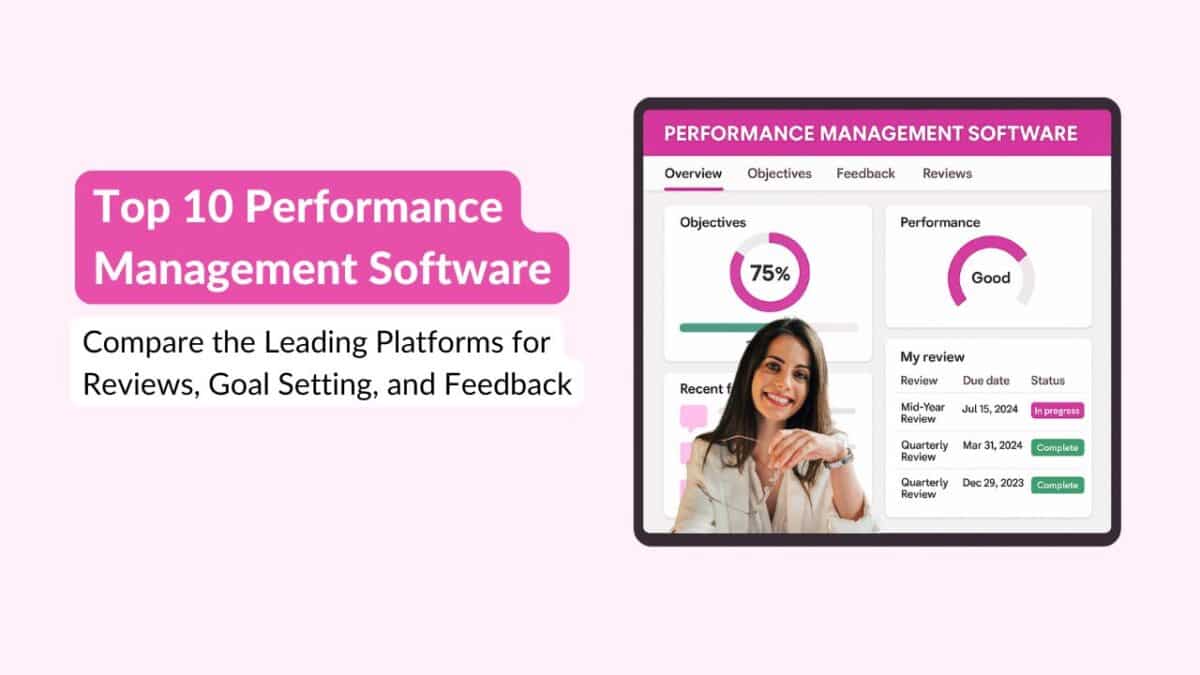Employee experience is something organizations should pay a lot more attention to.
Employee experience is the sum of all the things the employee experience at work. This could encompass a wide variety of factors such as feedback, performance reviews, frequent communication, opportunity to grow, poor work environment, bad management, etc.
An employee’s experience decides whether they will continue to stay at an organization or move on. It can also determine how many people they are willing to refer to jobs within the organization or whether they warn them away. Therefore, it is important for organizations to create a positive and rewarding employee experience for employees.
One of the things that can greatly influence employee experience is performance reviews. Performance reviews encompass a gamut of factors such as feedback, career growth, development, praise, etc, all of which have a direct impact on an employee’s experience.
As such, it is important to create a good performance review culture, especially one that makes employees feel like it is enhancing their time at the organization, instead of making them feel like they need to flee as soon as they can.
Here are 5 performance review tips that can help improve employee experience
A culture of continuous feedback
Continuous feedback is something a lot of employees long for. Consequently, employees will actually leave jobs or become disengaged because they don’t receive enough feedback. Committing to creating a culture of continuous feedback doesn’t just boost employee engagement, it will also enhance employee experience. Since it is not a habit that comes naturally to most people, it is something that will take a lot of work. However, the rewards of continuous feedback go well beyond the effort that one puts into it.
A culture of praise and recognition
Just as continuous feedback is an important aspect of organizational health, so is an established culture of praise and recognition. Praise and recognition are vital to healthy organizations. Employees liked being recognized for good work. They feel like they are being seen and heard. When employees, especially talented ones are not given recognition despite their good work and are incessantly being told that they are not doing enough, they no longer believe in themselves and nor will they feel like putting in any effort. On the contrary, they will move on to other opportunities.
When praise comes too late or never at all, it’s a lost opportunity for everyone involved. Organizations lose out on talent, and employees realize their talents are well suited to other places.
Remove fear from the conversation
One of the emotions that performance reviews are most associated with is fear. Based on how they are conducted, performance reviews can cause anxiety, panic, anger, sadness, etc.
It is unfortunate that so many negative emotions are tied to performance reviews but it is also worth examining why we continue to use a process that is a painful affair for many people. The answer lies in the way performance reviews are usually conducted.
This is a somewhat sweeping generalization but most companies hold performance reviews annually. And in many cases, it is the only time employees receive feedback. And more often than not, employees are not prepared for the feedback they receive. No wonder they often feel surprised by the review, or even worse, are blindsided by negative reviews.
Therefore, it is important for managers to remove fear from the conversation and this can be accomplished through continuous feedback. This way, the employee knows what is coming, instead of being completely taken aback by a performance review conversation.
Focus on employee development and growth
When employees feel like they are stagnating or going nowhere career-wise, everything good they have experienced before turns sour. This is because nobody wants to feel like they are being left behind while the world is moving ahead. Organizations which offer career development and growth are more likely to have employees that stick around because they know that their development needs are being fulfilled.
During performance review meetings, it is important to discuss how an employee would like to grow, the avenues and challenges they would like to pursue and tackle next, where do they see themselves in the next 3 years, etc.
Listen to employees
Performance reviews often end up being one-sided conversations, with managers talking to employees. However, in order for it to be a fruitful conversation, the conversation should be two-sided. Both the employee and manager need to participate. And even more importantly, managers need to listen to employees. While a manager can share feedback about how they think an employee has performed, only an employee will be able to list out the area they excelled in, and the ones they struggled in. And while the manager might want them to work on something in the future, the employee might like to focus on something different. But the only way to know this is a manager listens. If they don’t listen, or even worse ignore what the employee is saying, they risk alienating the employee.
Do you want to know how Engagedly can help you with performance management in your organization?
Talk to our experts and request a live demo!
Request A Demo
Author
Srikant Chellappa
CEO & Co-Founder of Engagedly
Srikant Chellappa is the Co-Founder and CEO at Engagedly and is a passionate entrepreneur and people leader. He is an author, producer/director of 6 feature films, a music album with his band Manchester Underground, and is the host of The People Strategy Leaders Podcast.






